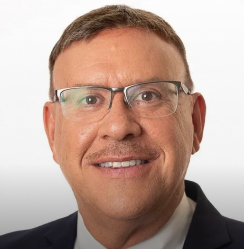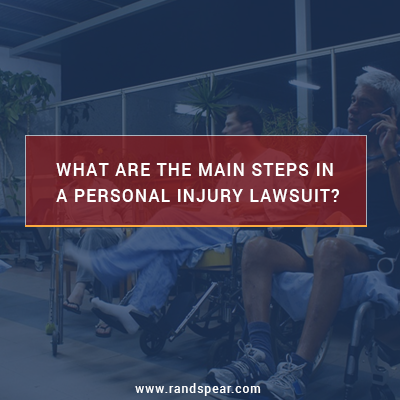
A train accident can leave a person with serious injuries and terrible trauma. Most people never expect to experience something like this, and when they do, they may not know what to do after a train accident. At Rand Spear – The Accident Lawyer, know that our Philadelphia train accident lawyer wants you to be prepared with what to do right after a train accident.
Train Accidents Happen Frequently and Lead to Serious Risk of Injury
Train accidents are not uncommon, with 6,705 railroad injuries occurring in 2023, with 995 people dying from injuries, according to the National Safety Council Railroad Deaths and Injuries report. That’s an increase from the year before, which indicates there is a very real risk of being in such an accident. Some of the most common causes of train accidents include:
- Derailment due to poorly maintained railways and lines
- Equipment failures in any component of the train
- Negligence of the conductor or others involved
- Track defects due to poor design or manufacturing
- Mechanical failures that lead to collision risks
- Collisions with other objects
If you are involved in a train accident, you may have the right to seek fair compensation for any losses you suffer. We strongly encourage you to hire a train accident attorney before you file a claim. Rand Spear is ready to fight for you throughout this case with our no-fee guarantee.

What You Should Do at the Time of a Train Accident
If you were just in a train accident, looking back over what occurred, you may be wondering if you did everything you could to protect yourself and others. Know that most people have no idea how to react to this type of event. Here is what a victim could do in the ideal situation right after a train accident occurs:
- Put yourself in a safe area. If possible, move to an area that is safe, as far from the train as possible, if that is an option.
- No matter where you are, your objective is to get out of the train car. Look for escape routes to do so.
- Help others in need if possible.
- Call 911 and wait for help. Follow all of the dispatcher’s directions in the meantime.
- Document everything you can after the train accident, including taking photos if it is safe to do so.
- Always get medical care, even if you feel just fine. Many times, these accidents create injuries that are not visible right away but can develop and worsen over time.
In the days after your accident, try to document everything you remember from before, during, and after the accident, including what you heard, saw, smelled, and experienced. This can help you develop important evidence that may offer a better understanding of what caused the accident to occur. Remember, it is your right to seek legal support from an attorney – do not wait to contact our legal team, and be sure to review our frequently asked questions to learn more.
What to Do in the Weeks After Your Accident
After your accident occurs, you may have substantial injuries to focus on, and that is where your priority should be. If you have already contacted a train accident attorney, stay in contact with your attorney to keep them up to date on your injuries and complications. In addition to this, there are a few other specific steps you can take to help build your case.
- Start a journal. In it, include your day-to-day losses, such as pain and suffering, medical costs, lost time at work, and other implications of your injuries.
- Continue with all recommended medical care. That should include seeking medical care for injuries through specialists, getting into rehab, utilizing recommended alternative therapies, and getting mental health care support.
- Minimize conversations about the accident with anyone outside of your attorney. What you say can be used later against your right to recover damages.
- Avoid posting photos online. Social media may be a great way to update family and friends on your healing, but doing so puts your case at risk. Avoid it if possible.
- Return to work only when your doctors tell you to do so. You should never feel forced to go back to work before you are healed, as that could impact your injuries.
A train accident can be a life-threatening incident that impacts you in multiple ways. After such an accident occurs, you could be faced with news organizations and reports who want to know what you know. In all cases, it is best to simply refer these people to your attorney and avoid making any statements about the incident as a good step for what to do after a train accident.

Getting Justice for Your Injuries
Do not assume that you will automatically receive compensation for your injuries and losses after a train accident. Even if multiple people were hurt, you still need to protect your right to compensation by seeking legal representation. To get justice for your injuries and losses, consider all of the ways it could impact you and your future.
- Your ability to work. Determine if you will be able to go back to the same work after you heal.
- Your quality of life. If you suffer long-term consequences from your accident, make sure to document why that is and how it is impacting you.
- Document all types of financial loss. This includes your medical expenses and lost wages, but it may also include out-of-pocket costs, transportation fees, and medical supplies you need.
- Consider your mental health. Do not ignore the signs of emotional trauma, including an inability to sleep, anxiousness, recurring images, and ongoing distress. Get help and document what is happening to you as clearly as possible.
The more aggressive you are at documenting the impact of this accident, the better. Let your train accident attorney offer insight into how to achieve these goals. You deserve to recover your losses fully, and our prior client testimonials tell that story.

Contact a Train Accident Attorney for Legal Guidance Now
You need an attorney ready to help you to take on the pressure from insurance companies and publicity. Put Rand Spear – The Accident Lawyer, to work for you. Set up a free consultation with our team to discuss your case and what to do after a train accident.
Call or text (215) 985-2424 or complete a Free Case Evaluation form










